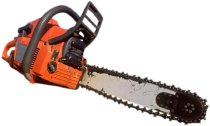21 April 2000
Prostate Surgery And Impotence
by George Atkinson  Sexual impotence after undergoing prostate cancer surgery is an unwanted but common side effect. Surgical removal of the prostate, known as radical prostatectomy, is probably the most effective treatments for early-stage cancer which is confined to the prostate gland.
Sexual impotence after undergoing prostate cancer surgery is an unwanted but common side effect. Surgical removal of the prostate, known as radical prostatectomy, is probably the most effective treatments for early-stage cancer which is confined to the prostate gland. To help overcome this problem some New York hospitals are testing a new device that helps preserve sexual potency , by helping surgeons locate and protect the nerves responsible for erectile function. A loss of potency after surgery is a major side effect as the complex network of microscopic nerves responsible for erectile function run alongside the prostate and urethra and are notoriously difficult to locate.
The new device called CaverMap Surgical Aid, (made by UroMed Corp.), helps surgeons locate and ultimately avoid the cavernous nerves responsible for erections. According to Dr. Herbert Lepor, Chairman of the Department of Urology at NYU School of Medicine, "This device is an especially useful addition to surgery, enabling surgeons to better preserve sexual potency in some cases. The loss of potency has deterred many men from seeking surgical treatment for early-stage, localized prostate cancer, a remedy that would help most of them survive their cancer for many years. Now, with this device, more men will feel secure selecting this type of treatment. This is especially important in light of the fact that more men are being diagnosed with early prostate cancer as a consequence of PSA testing." At this time the results of using CaverMap are not clear as it takes up to a year to regain potency after surgery, however the initial results are encouraging. A preliminary Canadian study indicated that more than 90% patients regained erections within a year following CaverMap, compared to about 30% of those who underwent the operation without the device. CaverMap consists of an electronic probe that stimulates nerves and a gauge which measures the rigidity of the penis. The device aids the surgeon's effort to spare nerves by identifying those nerves which stimulate erections during surgery to remove the prostate.
|

